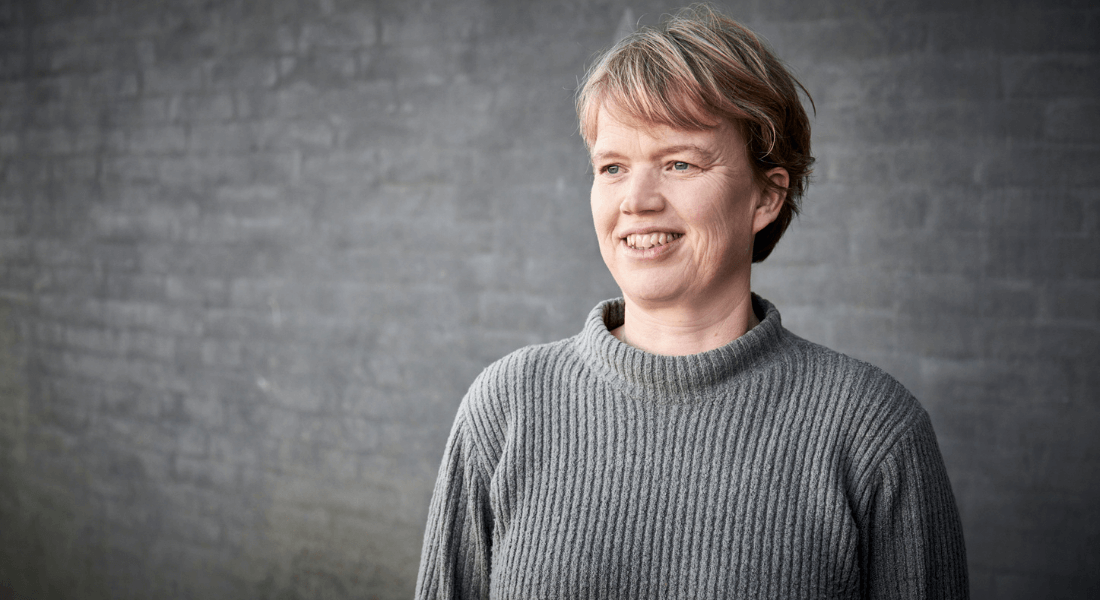Read more and apply here.
Camilla, Head of Department at NIRAS

"My education in environmental economics has provided me with a solid foundation in natural science which I still benefit greatly from but also strong, useful competences in environmental economics."
What do you do?
Together with a colleague, I’m overseeing an interdisciplinary department of approximately 30 employees working with sustainability, climate and circular economy. We work with development and analysis projects at the intersection between technology, economics and behaviour.
In addition to my management tasks, I spend a lot of time on academic projects – both as a project manager and in the role of giving academic input and advice. This may include, for example, providing socioeconomic analyses for ministries and government agencies or developing models to calculate climate footprint.
How did you end up in your current job?
I had a study-relevant student job on the master’s degree programme in what was then known as AKF (Research Institute of the Counties and Municipalities), which at that time was the focal point for environmental economic research.
My career path has actually evolved very naturally – when new opportunities have emerged, e.g. in the form of new challenges, management and such, I have taken them.
I wrote my master’s thesis together with a colleague at AKF. It concerned a house-price analysis and the recreational value of forests. After completing the project, I got a job as a generalist in what was then called the Ministry of Environment and Climate. I was actually supposed to start working in the Danish Environmental Protection Agency, but together with my master’s thesis colleague, I was brought into the Danish Nature Agency to produce a socio-economic analysis of afforestation based on our master’s thesis.
After a year, I applied to an internal position in a unit in the Danish Environmental Protection Agency that worked with environmental-economic analyses across the resort areas of the Ministry of Environment and Climate.
It was a dream job for me, and a very exciting place to be at a time when environmental economics was a rather new discipline, and rather controversial in the environmental area. For example, I worked with socio-economic analyses in the waste area (e.g. whether food waste had to be combusted or made into biogas) and with value-studies (e.g. a house price analysis of road noise).
the subject area within sustainability, climate, and circular economy, which I have always been working with, has exploded in recent years. The same goes for environmental economics – from being a controversial discipline, it has become an integral part of decision-making
I needed to try something new, and consultancy sounded appealing to me. I have now been in NIRAS for 15 years – the first 8 as a senior consultant and for the past 7 years as head of department. It has been varied and always challenging and stimulating work, and this is probably also the reason that I am still here. At the same time, the subject area within sustainability, climate, and circular economy, which I have always been working with, has exploded in recent years. The same goes for environmental economics – from being a controversial discipline, it has become an integral part of decision-making, and has for example recently been incorporated into legislation regarding climate change adaptation.
Being in the forefront of new developments and participating in them has always appealed to me. My career path has actually evolved very naturally – when new opportunities have emerged, e.g. in the form of new challenges, management and such, I have taken them. So, my career is not a product of careful planning.
Which academic skills do you use most in your work life?
I have benefitted immensely from my education, and I still use it a lot in my current work. As recently as last week, I consulted my master’s thesis to see how we had approached a certain topic.
My education in environmental economics has provided me with a solid foundation in natural science which I still benefit greatly from but also strong, useful competences in environmental economics. I have also had the pleasure of recruiting both interns and graduates with a background in environmental and agricultural economics.As recently as last week, I consulted my master’s thesis to see how we had approached a certain topic.
A good advice: What do you want to tell a prospective student?
A good part of the employees we hire are previous interns at our department.
I would strongly recommend applying for an internship. It is academically rewarding, gives a rare insight into a workplace and an invaluable network. A good part of the employees we hire are previous interns at our department. Alternatively: Try to find a student job which is relevant for your studies.
Apply and read more about the international MSc degree Environmental and Natural Resource Economics.
